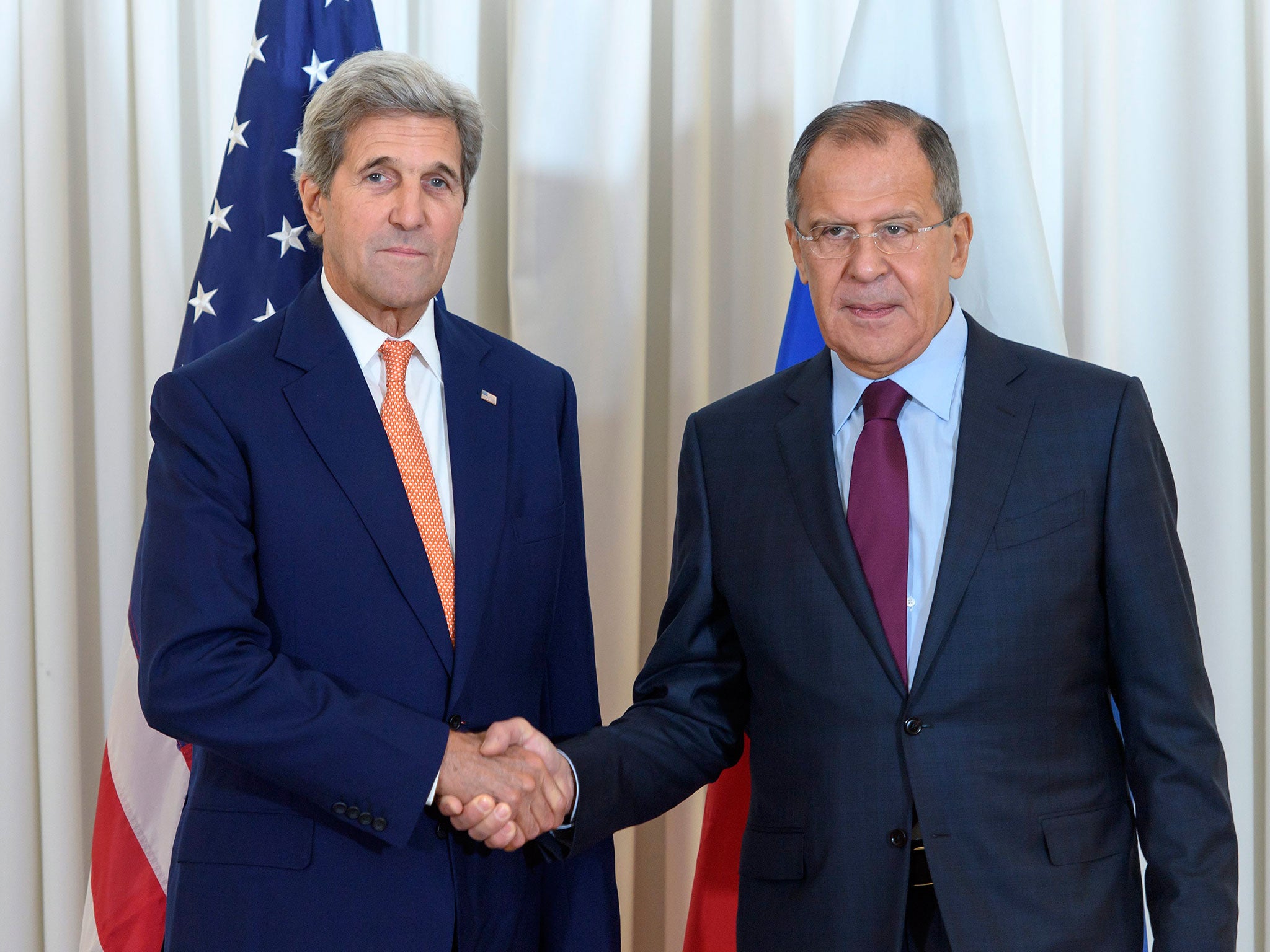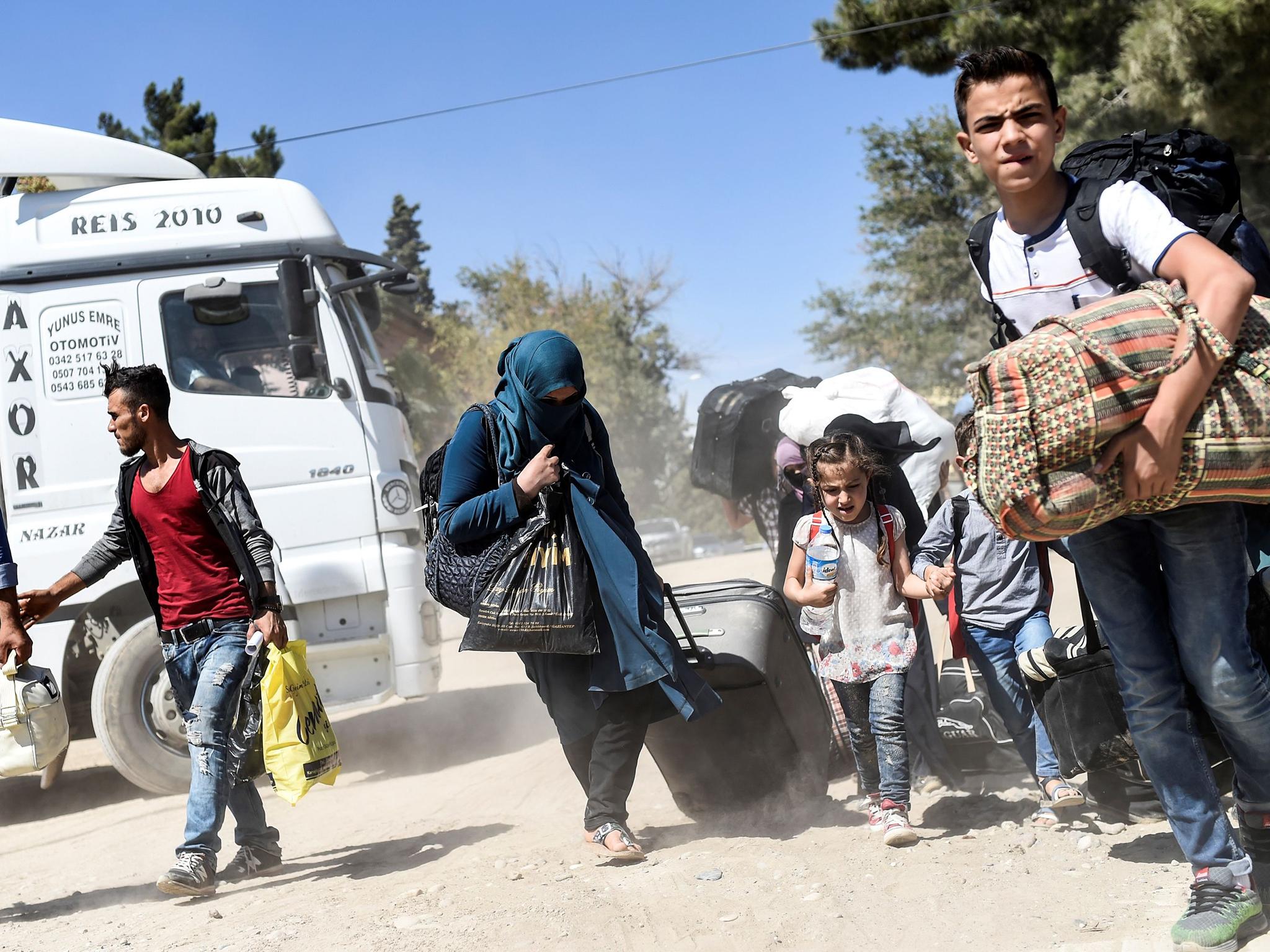Russia threatens to suspend Syria ceasefire talks after deadlocked day
John Kerry and Sergey Lavrov making fourth attempt to seal ceasefire agreeement

Efforts by the United States and Russia to agree the terms of a putative, nationwide ceasefire for Syria appear to be faltering with both sides reportedly snared by “technical issues”.
On Friday evening, Russia's foreign minister said he was close to "calling it a day".
Sergey Lavrov blamed Washington for the impasse after negotiations designed to end to more than five years of conflict between Syria's Russian-backed government and US-supported rebels.
"We are thinking of calling it a day and meeting next week," he said at the hotel in Geneva were talks were held.
Before talk began on Friday there had been guarded optimism that an agreement was at hand. Aides to the US Secretary of State, John Kerry, indicated he would not have agreed to a face-to-face session with his Russian counterpart if that wasn’t the case.
But as dusk approached, the mood changed. We are “not in a position right now to say whether or not a final deal can be reached,” a US official told the Reuters agency. “Discussions continue into the early evening, as technical issues are worked out between the two teams.”
It was the fourth such meeting between the top Russian and American diplomats in two weeks as the world strains to see whether there might at last be a formula for ending fighting that has already claimed 500,000 lives and triggered a refugee crisis.
The US official added that the two sides were, ”making progress ... towards advancing proposals that would lead to a nationwide cessation of hostilities in Syria, as well as sustained and unimpeded access to humanitarian assistance for communities most in need".
Not propitious are the circumstances on the ground, however, with fighting reaching new levels of ferociousness in and around the divided city of Aleppo, the most populous in Syria and once a key commercial hub.

As part of any deal, the Russians would be expected to persuade the regime of President Bashar al-Assad to end its military actions against rebel forces many of which receive US support. At the same time, however, the Americans would have to demonstrate their ability to detach the rebels groups from extremist terror networks including al-Qaida.
Separately, Turkey on Friday renewed its appeals for the creation of a no-fly-zone over northern Syria, a step it says is vital to allow the return of thousands of Syrian refugees to their homeland and for the training of local groups to fight Isis.
“For the people to return home, ensuring ground safety alone would not be sufficient, it would need to be supported by a no-fly zone so that there are no attacks from the air,” Mevlut Cavusoglu told reporters after talks with NATO Secretary General Jens Stoltenberg in Istanbul.
Human rights groups report that the escalating conflict in Aleppo has claimed more than 700 civilian lives in just the last forty days, including 165 children.
Aside from the political challenges, the proposed deal would be replete with tangled detail, for instance stating how far troops of all sides would have to fall back from demilitarised zones and the weaponry they would be allowed to keep. Establishing access for humanitarian aid was also a priority.
Just on Friday, the UN said that the Syria government had stopped aid convoys to Aleppo earlier this month and the city was on the brink of running out of fuel.
And events on the ground in Syria never stop evolving. The Pentagon said on Friday that the US had not been responsible for an air strike that killed Abu Omar Saraqeb, who led the former Nusra Front. “It was not a U.S. strike,“ Pentagon spokesman Captain Jeff Davis said.”Whatever happened there, it was not something that the US military did.”
Indeed, Pentagon officials say that American forces have stayed away from the fighting in Aleppo itself because it is not an area where Isis has any presence.
Not helping are all the simmering tensions between the US and Russia, many stemming from the Syrian crisis itself. Trust between Washington and Moscow remains an elusive commodity.
When it started its own military operations in Syria last year, Russia said its sole aim was to help crush Isis and the al-Nusra Front, the affiliate of al-Qaida in the country. The US has asserted however that Moscow’s main aim has been to prop up al-Assad.
The frayed nature of the relationship has also featured more and more frequently in the US elections, not least in the course of this week when Donald Trump, the Republican nominee, suggested in a national security forum on live TV that Mr Putin was a stronger leader than Barack Obama. Then on Thursday he appeared on a Moscow-backed news network, RT, and criticised American foreign policy, notably in the Middle East.
Join our commenting forum
Join thought-provoking conversations, follow other Independent readers and see their replies
Comments
Bookmark popover
Removed from bookmarks